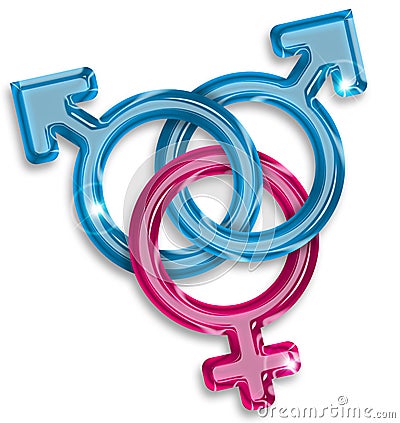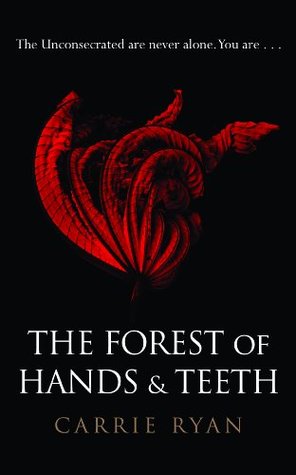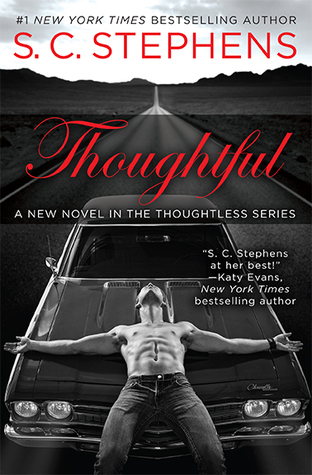Love-Triangles and What They Say About Women
 |
| Source: Dreamstime Stock Images |
As Deirdre Johnson argued in her 2010 book Love: Bondage or Liberation?
'there is the rivalrous triangle, where the lover is competing with a rival for the love of the beloved, and the split-object triangle, where a lover has split their attention between two love objects.' p.6 (London, 2010)It is especially the former, the rivalrous triangle, which emerges in a lot of contemporary, and especially YA, fiction. Literature has always centred around that which is dramatic and tragic, causing tension and conflict, since it is in conflict that humans reveal most about themselves. In itself, this is nothing bad, yet the idea of the love-triangle has been intrinsically linked with damaging female stereotypes which are thus continued.
 |
| Source: Goodreads |
One of the most tragic literary "love-triangles", in its truest and saddest sense, is from Tess of the d'Urbervilles by Thomas Hardy. The sexual double standard which perpetrates the novel cannot be missed. For Alec d'Urbervilles, Tess is something he can take whenever he pleases, whereas to Angel Clare, Tess is something to be worshiped until she, inevitably, falls off of her constructed pedestal. Neither of the two men in this love-game arranged by society see the woman for who she really is or take the time to really listen to her and respect her voice. She is judged for her, forced, sexuality, whereas male sexuality is accepted without question. And naturally Tess is the only real victim of this double standard. If you think that this double standard is singular to Tess of the d'Urbervilles or was gotten rid of by the first waves of feminism, you are sadly mistaken.
 |
| Source: Goodreads |
each man is a viable choice for the heroine but each speaks to a different part of who she is. The heroine isn’t choosing between two men, she’s choosing who SHE wants to be and that will dictate who the right match is. (source: Carrie's Procrastinatory Outlet, 11/05/2010)Although I can see how to some this would seem as a "better" interpretation of a love-triangle than to think of it as a woman being incapable of making up her mind, it makes me extremely sad. What this implies is that in order to find out who she is, the heroine has to choose a man. He is, clearly, already settled on his path and managed to be so all on his own, whereas the woman still wavers and is uncertain. Her knowledge of herself doesn't actually come from within herself but from the confirmation of the "rightness" of her feelings, given to her by the presence of a man. It perpetrates the idea that women are constantly looking for affirmation from men (but also generally from everyone around them), an idea which does nothing to boost girls' self-confidence.
 |
| Source: Goodreads |
In this sense, Thoughtful by S.C. Stephens was a crude awakening for me. The fourth book in the Thoughtless-series, it is written from the man's, Kellan's, point of view, giving us his perspective on the love-triangle including him his friend and the girl. While reading it I found myself severely disliking the female character, Kiera. Stephens gives her nothing in the sense of character to work with and when Kellan goes on a curse-filled rant against her I almost understood his reaction. By under-developing their narratives and automatically incorporating tropes, authors, male and female, are in danger of continuing damaging stereo-types in their books.
There is a lot more to say about this topic and my opinion is, by far, not the most informed. I am not saying that books with love-triangles can't be fun or be entertaining, but I think it is important to think about some of the traditions which underlie different literary tropes. What is it that these books are really saying and are you making up for is flaws by rationalizing them? What are your thoughts on love-triangles?



This is a really interesting topic! Before reading this my main theory on the popularity of love triangles was to do with things like choice and acceptance (I'm think particularly of YA here). My theory was that, given that adolescence can be such a difficult time when it comes to peer interaction and acceptance, new social activities and expectations, a love triangle was a way to make the heroine feel desired and valued at a time when she (and the reader) is struggling with new body issues and her awakening sexuality.
ReplyDeleteAny anxieties about who she is or how she looks are allayed by her supposed desirability to not just one but two boys. Despite social pressure to lose weight / look better / act a certain way, the heroine unexpectedly finds herself valued by two men. On a very basic level, it taps into a desire that many teenage girls may have - to be desired. Which is a sad comment on the things young girls are taught to value.
The triangle also gives her the power of choice (although I think it's probably truer to say the illusion of choice, really) at a time when making decisions about her body and her life are still fairly novel and intimidating.
From this angle, the popularity of love triangles seems to be quite problematic. And having read your excellent post I definitely agree that one of the problems with the love triangle is that what appears to be a situation where the woman has agency is in fact part of a broader culture which sees women as commodities which must be fought over by men. I've often found, for instance, that the heroine doesn't truly believe in her own self-worth until one or more of the boys who are in love with her repeatedly proves to her how highly he values her. She can only see her own value once she's shown it through his eyes. I didn't know about the 'slut-shaming' shelf, but it definitely sounds problematic. Not to mention that it pits readers against one another, even if only in a spirit of fun (I'm thinking about how intense the whole 'Team Edward'/'Team Jacob' debate could get).
I'm sure there are plenty of books which feature love triangles but which try to upset some of these tropes, or which let the love triangle take a back seat and allow other characters - friends, parents, teachers - aid the heroine in her journeys of self-discovery. But I definitely agree that the love triangle can be problematic, especially when it's used as the central plot rather than just one device in a broader story.
I think the idea of choice is definitely key in why people enjoy love-triangles! The pretense of female agency is my main gripe with this whole trope! Thanks for your interesting comment :)
DeleteExcellent post. I dislike love triangles, and I often find myself feeling bad for the male characters involved. A lot of times, the female character strings them along until she makes up her mind (or her mind is made up for her). It seems cruel and unfair to the boys.
ReplyDeleteAj @ Read All The Things!
This the response it often triggers in me as well, when it is equally often not even the female character that chooses to "start" a love-triangle! She still ends up with the blame for it, even when not causing it and as such I think this trope is in need of major reconfiguring! Thanks for your interesting comment :)
DeleteAll of your points on love triangles are very thought provoking. I really dislike love triangles but I never really though about why until I read your post. I definitely agree that love triangles can make the female character seem like a prize for the winning guy. Women are not prizes and I really dislike that mentality.
ReplyDeleteLove triangles typically don't work for anyone. In the end the characters will most likely end up happy, even the one who doesn't "win", but that doesn't make them a good trope to use over and over. All three people are having to compete for affection, the guys can end up being really possessive and controlling at times, and the girls tend to look like they enjoy toying with boy's emotions. I get that teenagers are going through a period of growth and uncertainty so having a character date around and not jump into a serious relationship from the get go makes sense. I just don't like the competition aspect very much. I'd much prefer a simple romance. And really, a lot of love triangles come down to some form of cheating or another, even if one of the points of the triangle is currently dead, currently off somewhere, or currently "abandoning" the girl.
I also think that love triangles take way too much emphasis away from the storyline. Yeah, if the book is purely a romance novel with the entire goal being "who will she choose" than it works. But I've read plenty of books that have great world building, serious backstory, and amazing drama going on that gets side railed by the love triangle and the whole back and forth. I'd prefer to just leave that out all together.
Anyway, really great, through provoking post! :D
Cayt @ Vicarious Caytastrophe
I definitely agree that love-triangles take up a lot of pages in books, too many, and this is probably why a lot of people are getting fed up with them as well! I think neither of the genders really looks good in a love-triangle! Thanks for your interesting comment :)
DeleteI think that a lot of women have at some time in their lives secretly wished it would be alright to love another man while still be with their chosen partners. Maybe it is this satisfaction of other people, even if they're only book characters, to live out those very secret, or even subconscious wishes that makes us enjoy love triangles.
ReplyDeleteThough I do agree that a lot of them only diminish my respect for some of the protagonists because they're behavior is just embarrassing.
I definitely feel like this satisfaction is part of it, because it feels like a guilty pleasure maybe, in that sense. It's just a shame that the sense of guilt and judgement is so tied up with it! Thanks for your interesting comment :)
DeleteIt's almost like people don't have the right to feel bad for the male character because otherwise you would be called sexist. If you always see a woman as only a woman and never as an human being in themselves who can be a asshole too then you're the one who is sexist. If someone who looks like Brad Pitt is romantically interested in me and I look okay I would question why. Surely if a man made a work of fiction they would want the hottest women. Everyone wants to feel desired. And I'm not sure about the double standards. Regardless of gender, going back and forth between two people cheapens the love and romance and desire that they had previously.
ReplyDelete